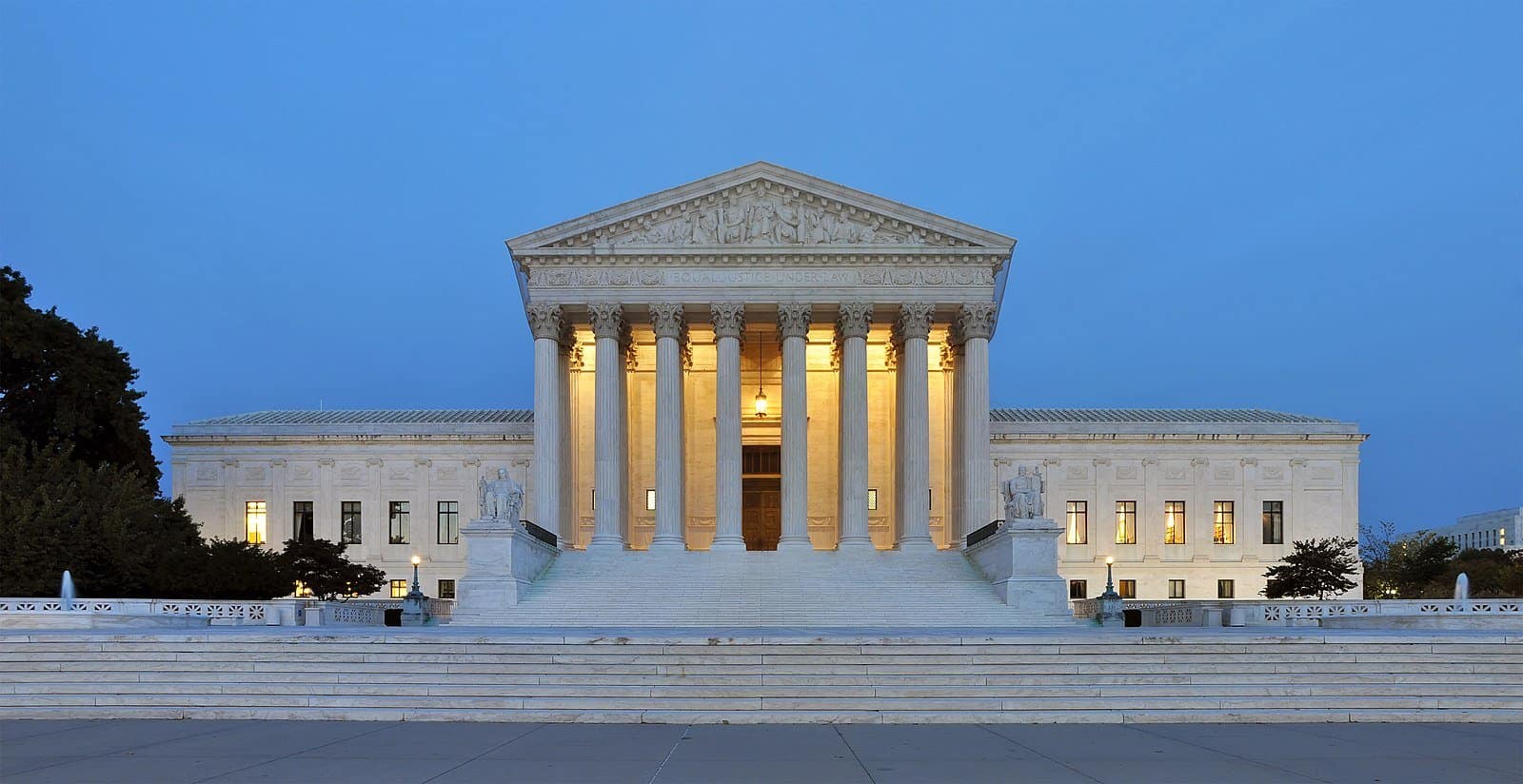
Courtney Brunson is a student at Harvard Law School and member of the Harvard Legal Aid Bureau.
Following the landmark ruling of Bostock v. Clayton County that expanded workplace protections for LGBTQ employees, Bloomberg Law wrote about a substantial exception to the enforcement of LGBTQ worker discrimination: It does not apply to businesses that employ fewer than 15 workers. Though there is no data on the amount of businesses that have fewer than 15 workers, data from the Bureau of Labor Statistics (BLS) suggests that 17% of the country’s workforce employees 19 or fewer employees. Considered the most significant ruling for LGBTQ Americans since Obergefell v. Hodges in 2015, the 6-3 concluded that Title VII of the Civil Rights Act of 1964’s definition of “sex” also barred employment discrimination based on a worker’s sexual orientation or gender. On Labor commentators wrote both an opinion summary and commentary round-up about the case. Unfortunately, because the decision only interpreted the individual statute, the exclusion for smaller companies remains and is “one of several subtleties that got lost in the headlines given the significance of the decision,” according to Jon Nadler, a Philadelphia-based lawyer who represents businesses in employment litigation. Though some states, like California, have stronger laws that mandate that all employers cannot discriminate, other states do not.
As protests regarding police brutality and racial discrimination continue throughout the country, the Los Angeles Times has written about the calls from many labor activists for legal reforms to limit police collective bargaining agreements, expand transparency into police misconduct, and make it easier to fire officers for wrongdoing. Some current contracts allow departments to erase disciplinary records and officers to limit the release of investigative records to the public – while still being able to access them before they are questioned. The article cites one working paper from University of Chicago that concluded that “collective bargaining rights led to about a 40% increase in violent incidents of misconduct among sheriffs’ offices.” It also refers to the article written by On Labor’s Benjamin Sachs.
Workers and CEOS in tech companies throughout the nation have also been speaking about their experiences with unintended instances of racism in the workplace and challenging technology companies and venture capital firms to hire more individuals and fund more projects of color. In the article, Will Hates, the black CEO of software company Lucidworks Inc., spoke about the numerous instances of mistaken identity he faced in which someone would believe a white man on the team was Hayes and not him. Barry Givens, a presenter at a TechCrunch Disrupt conference in 2013, recalled a moment in which conference security wanted to talk to him after he walked off the stage about another attendee’s missing backpack. These stories embody the feelings of self-doubt and powerlessness that black workers within the tech industry. Despite 13% of the U.S. population being black, black businesses have received less than 0.4% of venture capital. Families, friends, and wider networks often serve as a significant source of investment for these businesses. Given that black families often have a net worth that is a tenth of the worth of white families, black entrepreneurs are often at an additional advantage. As tech workers and leaders continue to navigate how to move forward, some are optimistic about the responses they’ve received while others are less convinced that any change will come.
In New York Magazine, writer Eric Levitz spoke about the 24,715 meatpacking workers have been infected with the coronavirus and 86 people who have died from it as of last week. As I recently discussed in an On Labor post, meat slaughterhouses have long had major concerns about worker health and food safety, which have only been amplified by the coronavirus’s exceptionally high rates of death and infection. The article reaffirms worker calls for elevated workplace safety standards and benefits to allow them to continue to operate during the pandemic.
According to an article published today in the Harvard Business Review, Henrik Cronqvist of the University of Miami Herbert Business School compiled data on U.S. CEO’s socioeconomic backgrounds and their firm’s personnel practices and policies. The study concluded that CEOs raised in less wealthy households were more likely to head companies that did not treat their workers as well. Cronqvist argues that psychology, economics, and sociology all factor into this conclusion. He asserts that the CEOs saw their parents receive lower pay, less job security, fewer benefits, higher physical demands, and odd hours. As a result, they were “shaped in part” by those experiences when creating and leading their own firms. However, the author noted multiple factors of the study that affected its results, including that the data set was largely for older individuals and only included 5% of minority CEOs and 4% of female CEOs. He also noted that there was a critical variation across industries.






Daily News & Commentary
Start your day with our roundup of the latest labor developments. See all
July 4
The DOL scraps a Biden-era proposed rule to end subminimum wages for disabled workers; millions will lose access to Medicaid and SNAP due to new proof of work requirements; and states step up in the noncompete policy space.
July 3
California compromises with unions on housing; 11th Circuit rules against transgender teacher; Harvard removes hundreds from grad student union.
July 2
Block, Nanda, and Nayak argue that the NLRA is under attack, harming democracy; the EEOC files a motion to dismiss a lawsuit brought by former EEOC Commissioner Jocelyn Samuels; and SEIU Local 1000 strikes an agreement with the State of California to delay the state's return-to-office executive order for state workers.
July 1
In today’s news and commentary, the Department of Labor proposes to roll back minimum wage and overtime protections for home care workers, a federal judge dismissed a lawsuit by public defenders over a union’s Gaza statements, and Philadelphia’s largest municipal union is on strike for first time in nearly 40 years. On Monday, the U.S. […]
June 30
Antidiscrimination scholars question McDonnell Douglas, George Washington University Hospital bargained in bad faith, and NY regulators defend LPA dispensary law.
June 29
In today’s news and commentary, Trump v. CASA restricts nationwide injunctions, a preliminary injunction continues to stop DOL from shutting down Job Corps, and the minimum wage is set to rise in multiple cities and states. On Friday, the Supreme Court held in Trump v. CASA that universal injunctions “likely exceed the equitable authority that […]